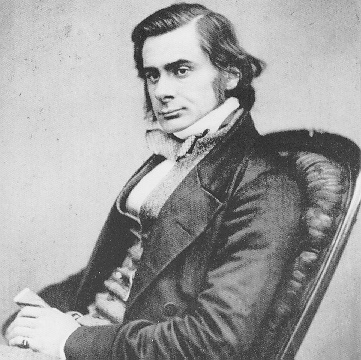Thomas Henry Huxley (1825-95)

Born the son of a schoolmaster, TH Huxley fought his way to the top of the
scientific profession, at that time dominated by men of independent means,
"gentlemen scientists". Huxley did not have the option of funding himself,
but by incredible hard work and tenacity he managed to make his way within a
system not designed to give any financial support or salary to scientists.
Like his contemporary Charles Darwin, Huxley launched his scientific career
on the back of scientific discoveries during a long naval expedition to
distant parts of the world. Huxley became an expert on plankton, the
drifting, mostly microscopic, organisms that inhabit the surface oceans of
the world.
He was one of the first to look at samples of mud dredged up from the deep
sea floor, and with a light microscope he was just able to see distinct,
round, light-coloured particles everywhere within the mud. Huxley coined
the word "coccolith" for these particles, whose true biological nature was
only discovered much later.
Huxley is best known for his later championing of Charles Darwin's Theory of
Evolution by Natural Selection. In a celebrated exchange at the British
Association in 1860, Huxley and the Bishop of Oxford, Samuel Wilberforce,
clashed; with Huxley declaring he would rather be descended from an ape than
a bishop.
Huxley also helped to set in place mechanisms for scientific positions to
be given attached salaries, taking science away from the exclusive province
of the rich.
[Adrian Desmond, "Huxley: the Devil's Disciple", 1991, Michael Joseph Ltd]
click here
to read about Cesare Emiliani, the other scientist commemorated in Ehux's
name.
Ehux
home page
Toby Tyrrell : T.Tyrrell@noc.soton.ac.uk
